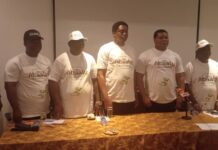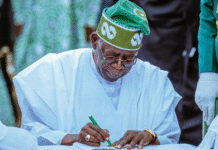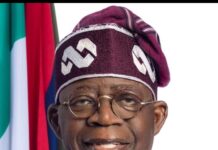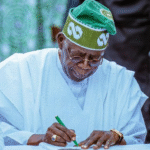Over the past decade, academic freedom has declined in more than 22 countries representing more than half of the world’s population, four billion people, says the Academic Freedom Index: Update 2023 (AFI), a new study, produced by researchers at the Friedrich-Alexander-Universität Institute of Political Science (FAUIPS, Erlangen-Nuremberg), Germany, and the V-Dem Institute in Gothenburg, Sweden.
Among these countries are India, China, Mexico, Britain and the United States.
Only 0.7% of the world’s population live in the five small countries in which academic freedom has increased. In countries such as Czechia (also known as the Czech Republic), Luxembourg, Sweden, Peru, Portugal and Canada, academic freedom is robust. For many of the remaining 152 countries, the AFI shows, academic freedom is stagnant at a low level.
“Our data provides the first comprehensive overview of academic freedom worldwide, allowing us to compare countries and investigate developments over time,” says Dr Lars Pelke, a postdoctoral researcher at FAUIPS who is part of the AFI project.
“We use a 10-year window to compare the state of academic freedom globally for several reasons. First, we are interested in the longer-term developments in addition to short-term changes in single countries. Second, year-to-year comparisons would mask developments that need time,” says Pelke.
“That said, there are some countries with drastic changes from one year to the next. Take the example of Afghanistan: That country’s AFI score dropped from 0.57 in 2020 to 0.53 in 2021 and now 0.14 in 2022 – a significant deterioration in a very short time. (These figures are outside of the confidence interval, so we can exclude statistical noise.)”
According to Dr Katrin Kinzelbach, one of AFI’s two principal investigators, the “findings are alarming: From autocracies like China, and increasingly authoritarian countries like India, to fully-fledged democracies like Britain and the United States, we found measurable decreases in academic freedom. In the UK, for example, we found declines in ‘campus integrity’, the extent to which campuses are free from politically motivated surveillance, and academics’ freedom of expression on political issues”.
Restrictions on academic freedom violate international law, stresses Kinzelbach, who teaches international politics of human rights at FAUIPS.
“By ratifying the UN’s International Covenant on Economic, Social and Cultural Rights, 171 states have committed to protecting the freedom indispensable for scientific research. Infringements on academic freedom thus violate internationally codified human rights,” says Kinzelbach.
“Academic freedom infringements do not only hinder researchers, they make it more difficult for students to develop independent, creative and knowledgeable minds.
“Beyond universities, researchers and students, academic freedom concerns people’s rights and opportunity to freely benefit from scientific progress. Our data indicates that half of the world’s population lives in countries where academic freedom declines.”
The AFI is a study of 179 countries that is built upon a 17-question survey, administered by V-Dem, completed by 2,197 experts in higher education. Five questions refer directly to academic freedom.
The question, “Do constitutional provisions for the protection of academic freedom exist?” did not require further explanation. By contrast, “To what extent is academic freedom respected?” required a hundred word ‘clarification’. This is an indication of the difficulty the questionnaire’s designers had in defining the extent and nature of academic freedom so that it applied to campuses around the world – what in a document entitled V-Dem Methodology, available on the AFI website, calls ‘latent phenomenon’.
In the short document on the V-Dem website, Kyle Marquardt, who in addition to being an associate professor of comparative politics at the University of Bergen (Norway) is the project manager for measurement and methods for V-Dem, uses an example that distinguishes between de jure and de facto constitutionalism.
“It is easy to observe whether or not a legislature has the legal right to investigate an executive …. accessing the extent to which the legislature actually does so requires experts with extensive conceptual and case knowledge,” he states.
Each country was judged by at least nine experts (‘coders’). Larger countries, such as India and the United States have more coders, 27 and 32 respectively. To protect the identity of coders in small countries, all coders remain anonymous, though AFI posts the completed questionnaires, which, together, contain 318,219 observations on its website.
“To account for potential expert biases, the AFI uses a statistical algorithm (the V-Dem measurement model) to estimate differences in both expert reliability and scale perception as part of its process for estimating country-year variable values. To estimate differences in expert scale perception the algorithm incorporates data from anchoring vignettes, or hypothetical cases that all experts can code regardless of their specific country expertise,” says Marquardt.
Czechia, home of Prague’s Charles University (founded 965 years ago, some 40 years before Oxford) and more than another 40 colleges and universities, sits atop AFI’s league table. Bunched close to its cumulative score of 0.94/1 are Estonia, Belgium, Italy and Germany; the lowest AFI score in this quintile is Slovenia’s 0.93. “Given the uncertainty levels for these country estimates, the 0.01 difference between Czechia and Slovenia is likely just random noise,” says Marquardt.
The 17 countries in the second quintile have scores ranging from Burkina Faso’s 0.93 to Switzerland’s 0.90. This group includes Costa Rica, Portugal, Lithuania, Australia, France and Ireland. The countries in the third quintile are led by Panama and Canada (both with a score of 0.89) and ending with Kosovo and Botswana (0.85).
The country with the lowest AFI score, 0.01, is North Korea. Above it are Myanmar, Eritrea and Turkmenistan. Six places higher is China (0.07) and seven above it is Cuba with a score of 0.09.
Global North assumptions challenged
Speaking to the fact that 29 of the 72 countries in the top three quintiles are from the Global South and another seven are developing countries in Eastern Europe, Kinzelbach says,“I think we are used to seeing university rankings that mostly feature universities in the Global North at the top. This is not least a function of [their] available resources. In my point of view, such rankings provide an incomplete and even problematic picture because they feed a reputation economy [ie past achievements] that pays no attention to academic freedom.
“The Academic Freedom Index looks at a different dimension of academic quality, namely the degree of individual and institutional scholarly freedom. As such, it might also challenge some common preconceptions about the Global North inevitably doing better than the Global South.
“It’s high time to shake up those stereotypes. Latin America, for example, has a long tradition of protecting institutional autonomy, and it is thus no surprise to see several Latin American countries with very high scores.”
Small countries with significant improvement
By contrast, the small country of The Gambia (2.3 million population) and smallish country Kazakhstan (18.3m population) have each seen their AFI scores rise. The Gambia’s score of 0.85 places it in the fourth quintile, .02% behind the UK.
According to Kinzelbach, “There is no doubt that the improvement of academic freedom in The Gambia is the result of a change in government. In 2016 The Gambia’s long time authoritarian president Yahya Jammeh was defeated by Adama Barrow and subsequent to that power transition, academic freedom improved across all dimensions covered by our index.”
Since 2017, Kazakhstan’s AFI score has doubled, from 0.25 to 0.5. When I asked Vladislav Davidzon, an expert on Central Asian Republics, who is a non-resident fellow at the Atlantic Council’s Eurasia Center, a think tank based in France, to explain why academic freedom has improved in Kazakhstan, he answered: “The Kazakh government is indeed making good faith attempts to advance norms in certain rights realms. They are, of course, primarily concerned with economic development but do understand the linkage with academic and thought rights.”
Factors in Russia’s steep decline
When I asked Kinzelbach for examples of what causes, for example, Russia’s AFI scores to have declined to 0.24 from 0.79 in 1998, she directed me to Researching Academic Freedom: Guidelines and Sample Case Studies (RAF), published by the Centre for Human Rights in Erlangen-Nuremberg in 2020.
In her chapter, “Academic Freedom in Russia”, Dr Katarzyna Kaczmarska, lecturer in politics and international relations at the School of Social and Political Science, University of Edinburgh, details what happened in Russia vis-à-vis academic freedom, beginning in 1993, three years after Vladimir Putin became prime minister of the Russian Federation and about the time he consolidated power under then-president Boris Yeltsin, whom he succeeded in 1999.
The highly centralised nature of the university sector in Russia, in which universities are funded directly by the government, makes the sector easily susceptible to what the report calls the “authoritarian-conservative turn in domestic politics” under Putin.
“Despite the clearly defined principle of academic freedom encapsulated in the constitution, specific laws indirectly undermine academic freedom,” writes Kaczmarska. Among the laws that have restricted academic freedom are the ‘foreign agent law’, penalisation for the rehabilitation of Nazism (a term, as we now know from Russia’s war against Ukraine, does not refer to neo-Nazis as understood in the West), laws on extremism and laws banning ‘disrespect’ for the state and its authorities.
Further contributors to Russia’s declining AFI score were the fact that rectors are appointed by the president, the growing links between rectors and Putin’s United Russia party, and the culture of self-censorship.
Kaczmarska cites at least 14 instances of professors being disciplined or dismissed from their positions. For example, in 2016, “Alexei Petrov, deputy dean of the faculty of history at Irkutsk State University, was dismissed because his public engagement was allegedly detrimental to his educational activities. Petrov was anonymously accused of expressing unpatriotic views and neglecting his university obligations.”
Deterioration in Egypt
Another country seeing a dramatic fall is Egypt. In 2011 its AFI score was 0.35; by 2020, it had fallen to 0.08, where it has remained. In RAF, Ilyas Saliba, a research fellow in the democracy and democratisation department at the WZB Berlin Social Science Center and at the Global Public Policy Institute, charts the deterioration of academic freedom in Egypt since 2017.
Among the examples he cites are the arrest and conviction of students and professors on trumped-up charges and restrictions, as well as criminalisation of research on “the role of the Egyptian army in the state and in society, on political Islam in Egypt (especially on the Muslim Brotherhood organisation, which has been criminalised), or on any other topic which the government deems inappropriate or unpatriotic is off-limits and may entail serious consequences for the researcher”.
An important additional contributing factor to the decline of Egypt’s AFI was the brutal murder in 2016, probably by state security forces, of Giulio Regeni, who was studying the role of independent unions after the 2011 revolution.
China’s Decline After Xi’s Reforms
The world’s three largest population countries – China, India and the US – have all seen declines in academic freedom in recent years.
China’s decline came after a period of increasing freedoms post the Cold War and before the rise to power of President Xi Jinping.
In 1990, the year the Shanghai Stock Exchange reopened after having been closed in 1949, a year after the Chinese Communist Party took power, China’s AFI index was 0.17.
Over the next decade, during which China rapidly industrialised and numerous large and important educational projects were undertaken with the aim of developing world-class universities, China’s index score rose to 2.9.
Among the five sub-categories that contribute to the final index score, the ones that rose the most were ‘Freedom to Research and Teach’, which went from 1.43 to 2.01, ‘Academic Exchange and Dissemination’, which went from 1.36 to 1.92, and ‘Institutional Autonomy’, which increased from 1.17 to 1.93.
For most of the next decade, the period during which large numbers of Chinese undergraduates began studying overseas and then returning for graduate studies in China, and when universities like New York University were negotiating with the Chinese government to establish campuses in China, the Middle Kingdom’s AFI score hovered around 0.28.
However, from 2008 China’s AFI score started declining, first from 0.28 to 0.24 in 2010 then 0.14 in 2013, and then 0.12 in 2015, and dropping every year until 2020’s score of 0.7. More specifically, the sub-index for ‘Freedom to Research and Teach’ dropped from 1.95 in 2010 to 1.01 in 2020; the sub-index for ‘Academic Exchange and Dissemination’ dropped from 1.75 to 0.91 over the same period. The figure for ‘Institutional Autonomy’ fell from 1.28 to 0.69.
The AFI report attributes the deterioration of China’s score to educational reforms launched in 2010, a few years after Xi Jingping became First Secretary of the Communist Party. The reforms did not erase the phrase ‘autonomous school-running’ from the official nomenclature. However, the document that set out the government’s position for the coming decade also included the country’s ‘guiding ideology’, which stressed the universities’ subordinate position to the one-party state.
“The university with Chinese characteristics entails a leadership and management system controlled by the university’s party committee, even if it includes an academic committee and a faculty representative assembly.” It is the party committee that “sets the boundaries of permissible research, exchange, and academics’ public speech,” says the AFI report.
The report also draws attention to a party organ established in 2017 that is responsible for overseeing the ideological education and management of teaching staff.
“Meanwhile in Hong Kong, a National Security Law enacted in Beijing in the summer of 2020 has put unprecedented pressure on academic freedom in the special administrative region,” says the report.
India Feels Impact Of Autocratisation
For three and a half decades after 1979, India’s AFI score moved in a narrow band around .70, which today would put it ahead of Japan’s AFI score of 0.58. But India’s 2020 score of 0.38, is the same as Palestine/Gaza’s and Uganda’s.
The decline telegraphed between 2009 and 2010 when the ‘Institutional Autonomy’ index dropped from 2.70 to 2.40. By 2014, every sub-index registered declines, with ‘Freedom to Research and Teach’ dropping from 2.86 to 2.63 since the previous year, while ‘Campus Integrity’ plummeted from 2.88 to 2.12.
The decline continued after the Hindu nationalist Narendra Modi became prime minister in 2014. According to the AFI report, “Campus integrity, institutional autonomy, and the freedom of academic and cultural expression declined more strongly over the following years than the freedom to research and teach and the freedom of academic exchange and dissemination.”
In 2016, V-Dem’s analysis showed that India’s vibrant democracy had collapsed and the country had become an ‘electoral autocracy’. “[C]entralisation, bureaucratisation, and politicisation,” the hallmarks of such regimes, undercut university autonomy.
Further, since India possesses no legal framework to protect academic freedom, notes the AFI report, Modi faced no legal impediment to attacking academic freedom. Hence, the ‘Freedom to Teach and Research’ sub-index has now fallen from 2.63 when Modi took office to 2.29 in the latest report. The ‘Academic and Cultural Expression’ sub-index has fallen even more: from 2.61 when Modi became prime minister to 1.56 today.
The AFI report sees India as a cautionary tale. Its measurable decline in academic freedom “demonstrates the pernicious relationship between populist governments, autocratisation, and constraints on academic freedom”, it states.
Freedoms Attacked In Us Culture Wars
For more than seven decades, the AFI score for the United States was either rising, from 0.74 in 1950 to 0.91 in 1973, or stable thereafter. Since 2016, the year Donald J Trump was elected president, America’s AFI score has declined from 0.92 to 0.79. This figure puts the United States in the top third of the fifth quintile, below South Africa and above Kenya.
Although Kinzelbach told me that with 179 countries to cover, the AFI cannot zoom in and provide details for subnational units such as states or provinces, in the case of the United States, the report provides a thumbnail sketch of what is happening at the sub-national level, for any explanation for America’s declining AFI score must refer to the states because they are the constitutional entity primarily responsible for education at all levels.
Further, the so-called ‘culture wars’, or what is also known as the fight against ‘woke’ policies by Republican governors is occurring at publicly funded state colleges and universities, such as those in Texas, South Dakota and, most notably, in Florida.
“At least nine states, all Republican-led, have adopted bills that ban the teaching of concepts related to ‘critical race theory’ in higher education institutions. Several states are also targeting tenure in public universities, adding to the already precarious status of academic employment,” says the AIF report.
In some states, students can record professors’ lectures without the professors’ consent and “various groups are maintaining public ‘watchlists’ of professors” deemed to be radical leftists, the report says.
PEN Issues Handbook On Defending Freedoms
The situation has become so charged that, coincidentally, four days before the 2023 AFI was published, PEN America, the US wing of the international writers’ group, and the American Council on Education (ACE) published Making the Case for Academic Freedom and Institutional Autonomy in a Challenging Political Environment.
In it, PEN/ACE lays out the history of academic freedom in the US, with recent threats to it, chiefly in Republican-controlled states, and provides a handbook for college and university administrators to defend academic freedom and the autonomy of their institutions.
Among the suggestions PEN/ACE makes are that college and university leaders must be more public in their defence of academic freedom. It urges them to write letters to the editor, or opinion essays, and to emphasise how academic freedom is the sine qua non of cutting edge research needed for both life saving medical advances and economic growth.
As AFI was readying to release its report and PEN/ACE its handbook, in Florida, House Bill 999 (HB 999) was beginning to move through the legislature. Characterised by PEN America as “the most draconian and censorious restrictions” on public colleges and universities, this legislation would ban the teaching of gender studies, critical race theory and intersectionality.
HB 999 establishes a mandatory general education course in the American government that requires professors teach ‘citizenship for a constitutional republic’ using only government approved texts. Additionally, HB 999 all but abolishes tenure, which since the American Association of University Professors’ 1915 Declaration of Principles on Academic Freedom and Academic Tenure (crafted mainly by the philosopher John Dewey, the AAUP’s president at the time) has been one of the foundation stones of academic freedom: tenure being the protection for the professor’s scholarship.
As is the case with several other ‘culture war’ laws DeSantis has pushed in Florida’s legislature, legal experts believe that HB 999 is vulnerable to legal challenges on both constitutional and other grounds.
“I think if you look at this law in its broader context, it’s clearly targeting certain viewpoints,” says law professor Caroline Mala Corbin, who teaches at the University of Miami law school and is an expert on the First Amendment.
“If the government has a truly compelling interest, and there would be no other way to accomplish that compelling interest than by restricting speech, would it be deemed constitutional? It’s hard to imagine the government coming up with a persuasive reason why it must ban these particular subjects.”
The AFI report concludes that “[d]espite efforts to polarise and intimidate, AFI data on academics’ freedom of expression indicates that scholars in the USA remain able to publically voice their expertise, even on politically salient issues”.
Florida Restricts Fundamental Rights
In Florida, where, HB 999 also gives government-appointed Board of Trustees the power to restructure the curriculum of the state’s only public liberal arts college, New College in Sarasota, to accord with right-wing ideology, things look rather more serious.
Andrew Gothard, president of the United Faculty of Florida, in an email to University World News, said: “Every Floridian must recognise in historical moments like these is that the question for each of us is not whether we agree with all of the tenets of gender studies, critical race theory, DEI programmes, and more subjects that the governor has targeted for eradication.
“Instead, the fundamental question here is whether we believe that free Americans have the right to disagree with one another and, more importantly, to disagree with their government.
“We all have a fundamental duty to protect the constitutional rights of all Floridians against these unprecedented fascist policies being proposed by Governor DeSantis and his supporters – when we protect the rights of others, we also protect our own rights to live, think, believe, and act as free citizens of a constitutional republic.”
Mexico’s Research Politicised
Mexico, the world’s tenth largest country by population, has also seen a downward slope in its AFI score from 0.93 in 2017 to today’s 0.67. It began a year before Andrés Manuel López Obrador became president, and has accelerated since he became president at the end of 2018.
According to the AFI report, López Obrador’s government has weakened institutional autonomy through harsh austerity measures and the political prioritisation of research addressing ‘national problems’, defined by the government’s agenda.
The AFI report glosses the decline in the country’s ‘Campus Integrity’ score from 3.69 to 2.89 by saying, it “has also contributed to the decline of academic freedom, with attacks on students, especially females, protests against these harassments, and a drug war fought on university campuses”.
Curled from 2023 University World News














